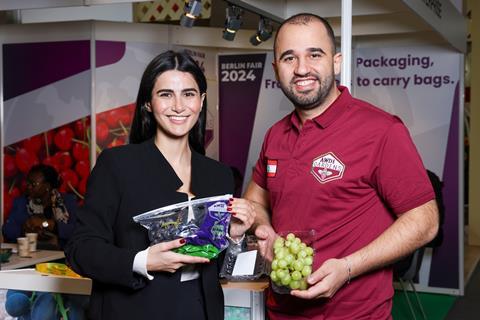Awdi Gardens is planting new grape and cherry varieties, as the Lebanese grower-exporter looks to widen its offering, but various challenges mean export growth will be gradual
New plantings at Lebanon’s Awdi Gardens are set to add not just the newest grape varieties to the company’s portfolio, but also popular cherry varieties, as the company looks to expand, not least in Asian markets.
“Our very first markets for Lebanese grapes were in Asia,” said vice president Ghassan Awdi. “We want to continue growing in Malaysia and Singapore where we are well established. But we also hope to use this opportunity to find and access new markets such as Vietnam, Thailand and Indonesia.”

The company hopes exhibiting at Asia Fruit Logistica in Hong Kong will give it a breakthrough in the region. “We want to reconnect with our customers and use this opportunity to properly plan the upcoming season,” said Awdi. “Although we are limited in the number of countries that have established protocols to import Lebanese grapes, we believe our customers in Asia have become accustomed to Lebanese grapes, and they are always included now as part of their supply programmes.”
In recent years, Awdi has exported limited volumes of fresh cherries, kiwifruit and stonefruit, as it looks to expand its portfolio. However, various challenges mean exports are likely to remain fairly stable.
“Due to the ongoing situation in Gaza and the disruptions via the Red Sea, we believe we will have to take a more conservative approach in terms of the volumes we export this year,” said Awdi. “Instead, we will be looking to supply a higher percentage to the local market.”
According to Awdi, the Red Sea crisis has doubled the transit time to Dubai. “Last year, it took seven days to Jebel Ali port,” he explained. “Now it is 17 days. We will focus on exporting varieties that are suited to longer journeys.”
Another challenge for the company’s exports to Asia is competition from China. “Chinese grapes have become extremely cheap,” said Awdi. “They are supplied in massive quantities and benefit from lower costs.”



